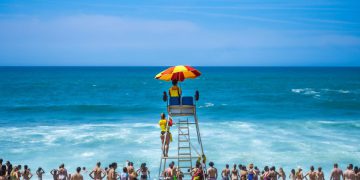
Free Image via Pexels
With winter behind us, temperatures are rising, and the open road is calling. In other words: It’s RV season.
But before you plot out your upcoming summer road trip, you have to get the camper out of winter storage and ready it for the road.
Dewinterizing Your RV

Free Image via Unsplash
As everyone who has joined the RV lifestyle knows, you can’t hit the road without first dewinterizing your rig.
Don’t forget the following steps to prepare your RV or camper for the travel season.
- Check Tires: RV tires regularly lose air pressure while in storage, particularly if it’s stored outside. Check tire pressure and inflate all tires (don’t forget the spare) to recommended levels. Driving on underinflated tires can cause poor handling and damage, including possible blowouts and accidents. Also be sure to check for signs of wear. Depending on their condition, you may want to purchase new tires for the season.
- Inspect Exterior: Visually inspect the exterior of your RV or camper for cracks, damage or leaks. Apply or replace any seals or weatherstripping as needed around windows, doors and other seams. If your RV was stored outdoors, pay particular attention to the roof for potential leaks, structural damage or seam cracks because of snow accumulation.
- Charge & Reinstall Batteries: Before hitting the road, check the charge on your batteries. If they are less than fully charged, you’ll want to get out the battery charger. If you’re uncomfortable with checking and installing your battery on your own, it’s best to contact an RV maintenance service to help.
- Flush & Sanitize the Water System: As part of the winter storage process, you might have added antifreeze to your water pipes. Now is the time to flush the antifreeze to ensure your water is clean and safe to drink while on the road. After flushing the water system, you want to sanitize to remove any bacteria or mold that might have grown during the months in storage.
- Check for Leaky Pipes: One final step in preparing your RV water system for travel is checking for leaky pipes in the plumbing. With water in the freshwater tank, turn on the electric pump and allow it to pressurize the water system. The pump will shut off when it reaches full pressure. Listen for several minutes to hear if the pump turns on again. If it does or doesn’t shut off at all, you have a leak somewhere. Find your leak under sinks, around the edge of toilets or by checking the pipe system. Leaks inside the RV or camper can cause water damage if left unaddressed.
- Change Filters: Install new filters for your water and air systems, as they can collect a lot of dust and debris during a busy travel and camping season. Clean filters also help your systems run more efficiently and cut down on energy usage. Ensure you purchase and install the right size filters for your systems.
- Test Appliances & Generator: You also want to test your appliances and RV generator. For gas-powered appliances, ensure you have refilled and reinstalled your propane tanks. For electrical appliances, plug in your RV to test things such as ACs and microwaves. Ensure you’re using a sufficient source of energy of 30 or 50 amps, or bigger appliances may not run properly. Before testing your onboard generator, check its oil level and the exhaust system for damage. After this inspection, turn on the generator to test. If your generator surges or won’t start, take it in for further inspection and repairs.
- Restock First Aid & Emergency Supplies: Don’t forget to stock up your emergency and first aid supplies. Check expiration dates on medications and throw out any expired dry food. Also make sure you have a healthy supply of bottled water in case of emergency. Your RV emergency kit should include tools and RV repair supplies such as pliers, hammer, screwdrivers, oil, coolant, hoses, batteries and leveling blocks.
Deep Cleaning Your RV or Camper

Free Image via Unsplash
Dewinterizing your rig is just the first part in travel prep. After months in storage, your camper likely needs a good deep clean. Here are some cleaning tips to get your RV ready for adventure.
- Wash RV exterior: Hose down and wash your camper’s exterior so it shines. When washing your rig, always start at the top and work your way down, taking care to use a cleaner that won’t harm the paneling.
- Critter Check: Winter is long and cold. Inspect your camper for any bugs, spiders, mice or other critters that may have taken up residence during storage. Check all the nooks and crannies, including your water heater, refrigerator drawers and cabinets.
- Clean fans and air conditioners: Keep fresh air flowing while on the road. Use warm, soapy water to clean fan blades and screens. For a thorough clean, take the fan apart and wash each component separately. Clean the fan housing with an all-purpose cleaning spray and cloth.
- Wash windows & screens: Remove all window screens and gently clean them with soapy water. Let them air dry or wipe with a clean towel. After you polish the windows with glass cleaner, replace the screens.
- Replace linens and towels: Change out any linens you removed for storage and change all towels, washcloths, bedding, pillows and blankets.
- Vacuum: Vacuum your RV floors and cabinet interiors to remove any dust that settled during winter storage.
Packing for Adventure

Free Image via Pexels
Whether you choose to camp, glamp or something in between with your RV, one final step to take before seeking adventure on the open road is to ensure you pack the proper supplies and equipment you’ll need for a safe and memorable trip.
The specifics of what you’ll need will depend on where you’re going and what you’ll be doing once you get there. To help you plan your list and prepare accordingly, check out these extensive RV packing lists including items for RV maintenance, kitchen and food staples, clothing, bedroom, personal items and outdoor/camping gear.
Storing Your Camper Between Trips
As fun as it would be, you likely can’t spend all summer road-tripping in your RV or camper. At some point, the journey ends, leaving you looking for a place to store your rig until your next adventure.
Whether you’re looking for covered storage or open-air parking, CubeSmart self-storage facilities offer storage options for RVs, campers and travel trailers to fit your needs.







